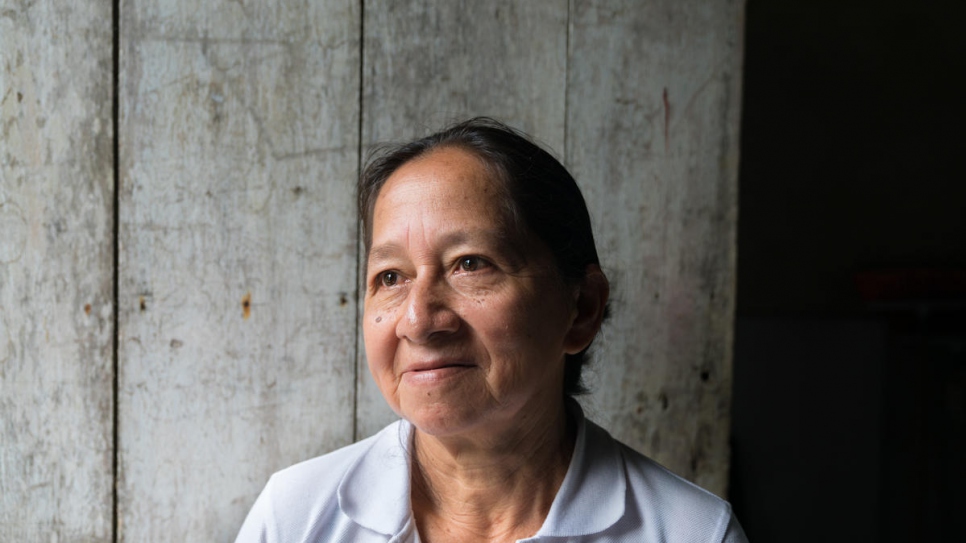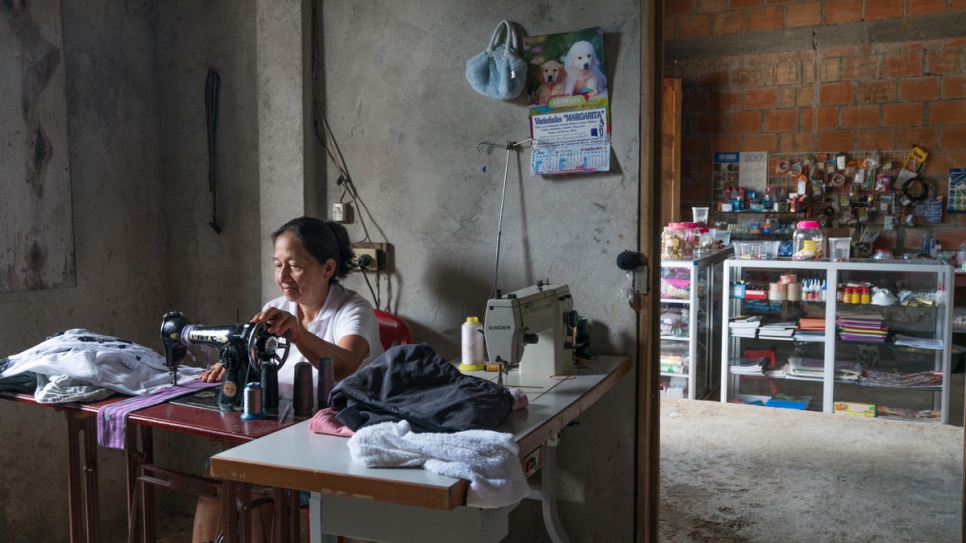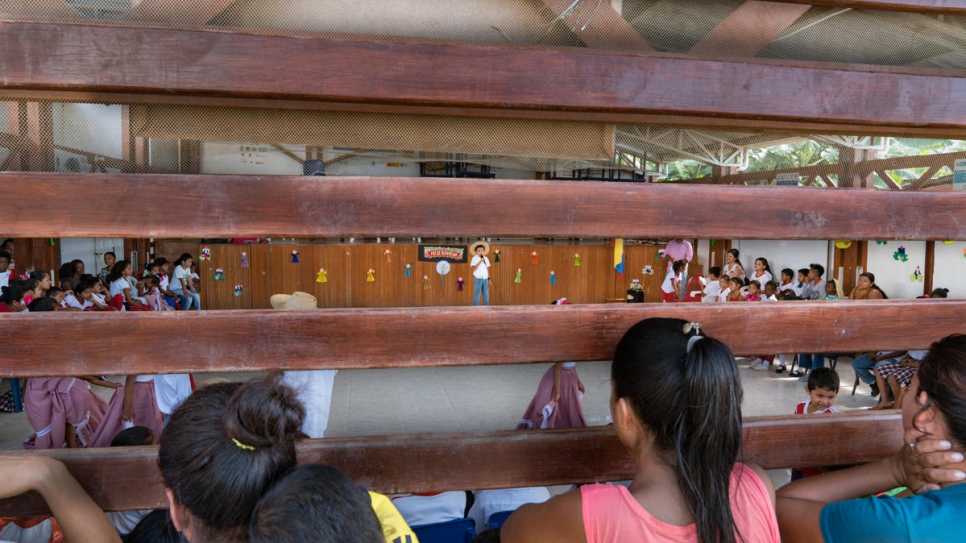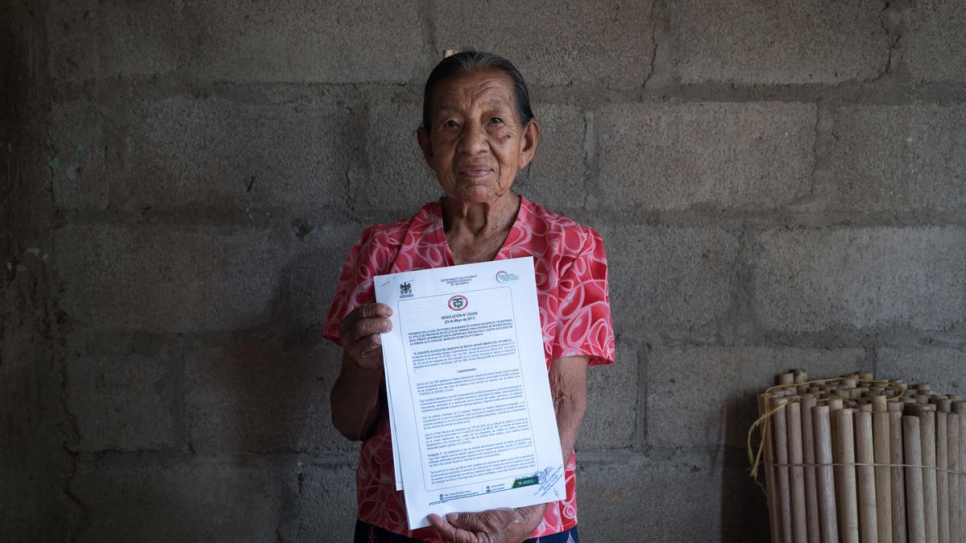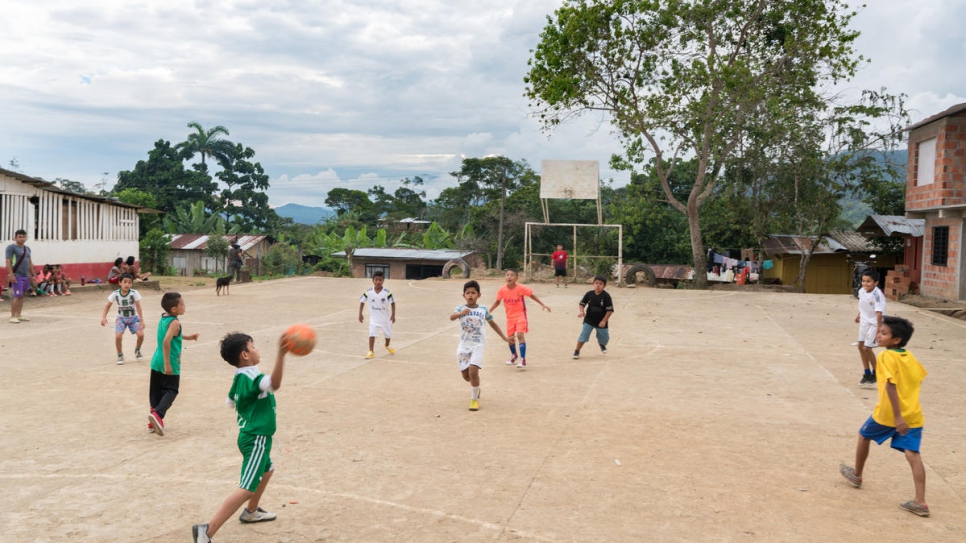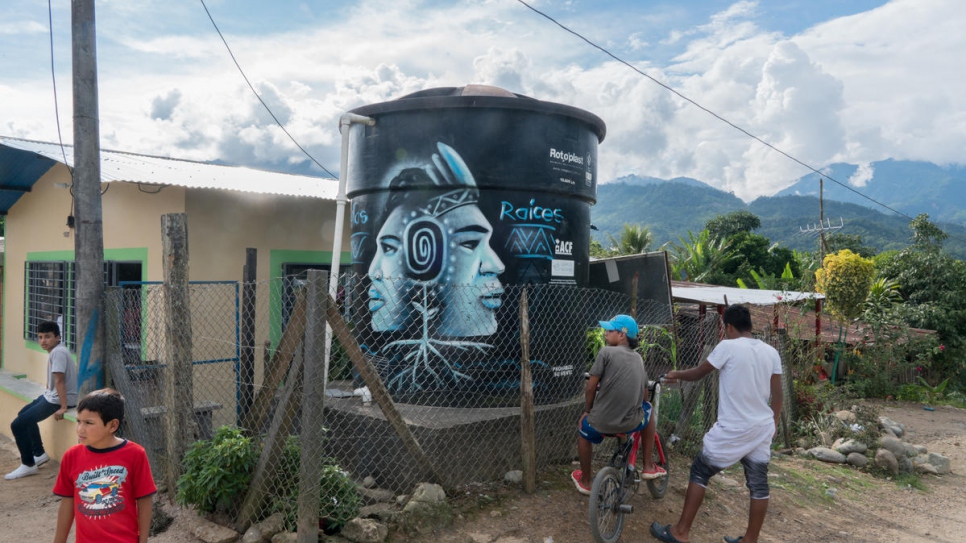Land title gives new hope to displaced Colombians
Five decades of war drove millions of Colombians to seek a precarious safety in informal settlements, but now some are getting title to their homes.
Children walk along a small road in Nueva Esperanza, where 228 displaced families live today with security from armed conflict. This settlement symbolizes a new future for residents.
© UNHCR/Ruben Salgado Escudero
Alba had already lost her husband in Colombia’s armed conflict when left-wing guerillas swept into her hometown and killed her three sons.
Gathering up her four-year-old granddaughter Karen, she fled to the outskirts of Mocoa, a city in southern Colombia, where thousands of other war-displaced people like them sought to start over in safety.
“We had lived in fear, so we were looking for a way out, to live a quiet life and avoid more deaths,” says Alba, of the informal settlement called Nueva Esperanza.
More than five decades of armed conflict in Colombia have uprooted some 7.4 million people within the country’s borders, many like Alba and Karen driven from remote rural areas which were hit hardest by war.
“We had lived in fear, so we were looking for a way out, to live a quiet life and avoid more deaths.”
Nueva Esperanza, which means “New Hope” in English, sprang up in 2001 when the first displaced families in the country’s southern Putumayo department staked out home sites – some using plastic bags as markers. It has since grown to a sprawling informal settlement that is home to 258 families.
While a peace agreement in 2016 between the government and Revolutionary Armed Forces of Colombia, or FARC, ended hostilities, many challenges remain for those who started over in these unplanned communities.
“Most internally displaced people who live in these informal settlements don’t have a basic access to rights such as the right to adequate housing, rights to water and sanitation, rights to education,” says Federico Sersale, a field officer with UNHCR, the UN Refugee Agency, in Putumayo.
UNHCR arrived more than three years ago, to help residents of the community access those rights. “When UNHCR walked in to Nueva Esperanza, everything changed,” says Alba.
A community centre, computer lab and a communal water system have been built in the last couple of years, with UNHCR’s help. Then 2017 brought the realization of an even bigger dream: Nueva Esperanza became the first informal settlement to be legalized in the Putumayo region. In August, 160 families received title to their land and another 106 are in the process of receiving theirs.
Raul Torres fled to Nueva Esperanza in 2009, displaced by the FARC in a region called Puerto Guzman. As President of the Victims Association he has been pressing the government for basic public services such as a health center and a school for his neighborhood.
“We hope the state will not ignore us anymore now that we have a property and that they won’t say ‘no we can’t build anything there because you don’t have your land title.’” As Torres Stands in front of his home, title in hand, he exudes a sense of pride.
“I feel that happiness, that security, because now I have what I needed, what I thought I would never have.”
“I would say it is because of the community’s role in this whole process without the community pushing for the legalization and for the land titles, this probably wouldn’t have occurred,” says Sersale.
Alma’s life was shattered by the war. Her voice breaks as she recalls her granddaughter’s reaction when they were told that the FARC had killed her father and two uncles. “She said to me, ‘Grandma, why do we have a cellphone? There is no one left to call us.’ She asked me this because she knew we were alone.”
But now Alba finally feels at home surrounded by her neighbours in Nueva Esperanza: “I feel that happiness, that security, because now – in my hands – I have what I needed, what I thought I would never have.”
It is a gift that Alba thought she would never receive, let alone be able to give: “For the future of my granddaughter, who I love so much, I wish to give her the inheritance that I cannot leave my sons. My wish is for her to have that.”
See Also: Driven from their lands, Colombia's Awa struggle to survive

